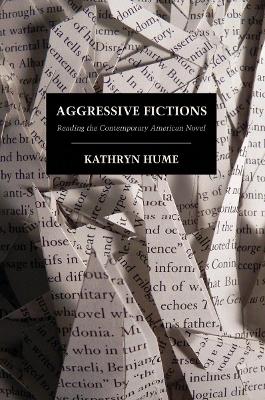A frequent complaint against contemporary American fiction is that too often it puts off readers in ways they find difficult to fathom. Books such as Bret Easton Ellis's American Psycho, Katherine Dunn's Geek Love, and Don DeLillo's Underworld seem determined to upset, disgust, or annoy their readers—or to disorient them by shunning traditional plot patterns and character development. Kathryn Hume calls such works "aggressive fiction." Why would authors risk alienating their readers—and why should readers persevere? Looking beyond the theory-based justifications that critics often provide for such fiction, Hume offers a commonsense guide for the average reader who wants to better understand and appreciate books that might otherwise seem difficult to enjoy.
In her reliable and sympathetic guide, Hume considers roughly forty works of recent American fiction, including books by William Burroughs, Kathy Acker, Chuck Palahniuk, and Cormac McCarthy. Hume gathers "attacks" on the reader into categories based on narrative structure and content. Writers of some aggressive fictions may wish to frustrate easy interpretation or criticism. Others may try to induce certain responses in readers. Extreme content deployed as a tactic for distancing and alienating can actually produce a contradictory effect: for readers who learn to relax and go with the flow, the result may well be exhilaration rather than revulsion.
- ISBN10 0801450012
- ISBN13 9780801450013
- Publish Date 5 December 2011
- Publish Status Active
- Publish Country US
- Imprint Cornell University Press
- Format Hardcover
- Pages 216
- Language English
